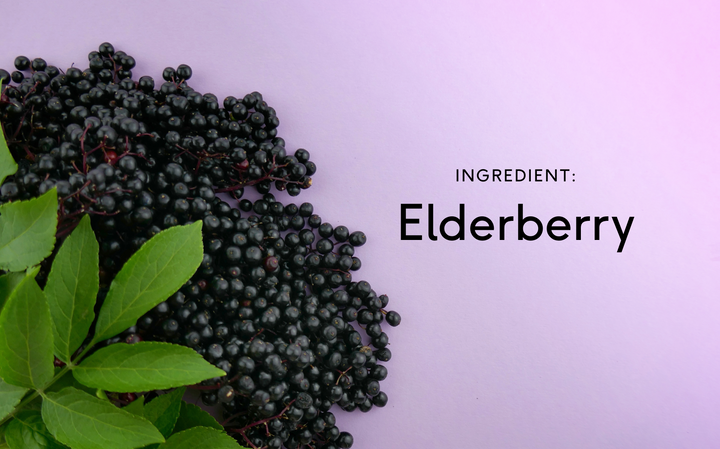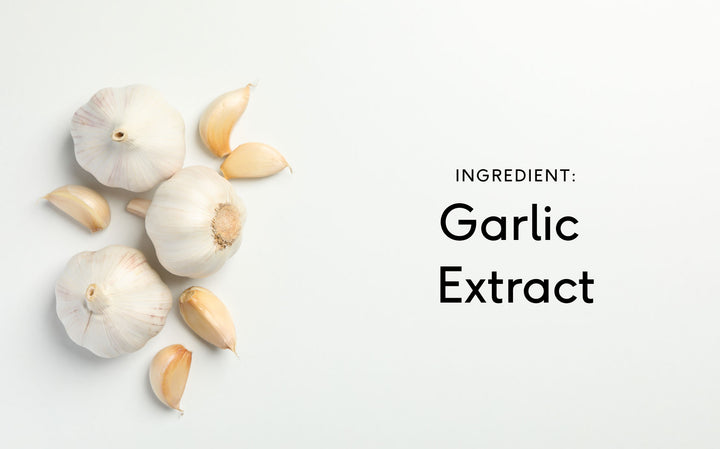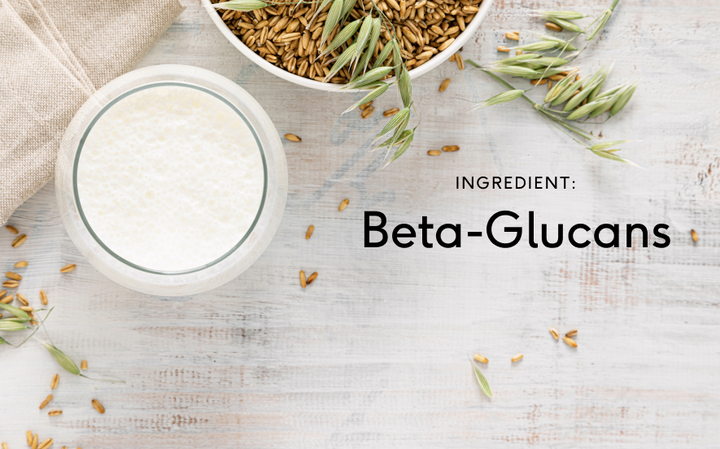What is Glucomannan: Benefits, Risks, How to use [2025 Nutritionist Reviewed]
Maya has completed an MSc in Advanced Complementary Medicine and specialises in the management of metabolic syndrome, NAFLD, cardiovascular and other chronic conditions.
Maya has completed an MSc in Advanced Complementary Medicine and specialises in the management of metabolic syndrome, NAFLD, cardiovascular and other chronic conditions.
Table of contents

What is Glucomannan?
| Ingredient name | Glucomannan |
| The ingredient is also known as | Konjac or Elephant Yam |
| Forms of nutrients available | Powder mixed with water or cellulose capsule |
| Possible bioavailability (water-soluble or fat-soluble) | Water soluble |
| Health benefits associated with Glucomannan | Weight loss, reduced cholesterol, constipation relief, increased healthy gut bacteria, reduced blood glucose levels |
| Year ingredient discovered | Traditionally used for thousands of years |
| Ingredient mostly used in | As flour made into noodles in Eastern countries |
| Recommended dose | 3 grams per day, split into 3 doses before meals for weight loss benefits. 4 grams per day to maintain normal blood cholesterol levels |
| Daily reference intake | N/A |
| Half-life of the ingredient | N/A |
| Signs of ingredient deficiency | N/A |
| Does the human body produce this ingredient? | No |
Glucomannan, sometimes called konjac, konjac mannan, or Glucomannan konjac, is a type of soluble fibre, coming from the tuber or root of the konjac plant, otherwise known as elephant yam (or, to give its scientific name, Amorphophallus konjac or Amorphophallus rivieri)1,2,3,4. The konjac plant is typically found in East and Southeast Asia2,3,4. Glucomannan konjac is a type of polysaccharide2,3, which is a type of carbohydrate.
Because we lack the enzymes to break down fibres like Glucomannan, it passes through the gut and is fermented in the colon by colonic bacteria1,4. It’s also highly water-soluble being able to absorb up to 50 times its weight in water1,4 making it the most viscous of all known dietary fibres3,4. It is commonly used for weight management thanks to its ability to promote feelings of fullness when it soaks up water and bulks up the gut1,4. It has also been found to have several other benefits as we’ll discuss2,3.
What forms of Glucomannan are there?
Konjac is processed into konjac flour which has been eaten in Asia traditionally for hundreds of years in the form of konjac noodles2,5. In the Western world however, it is more common to consume konjac Glucomannan as a dietary fibre supplement.
Glucomannan is extracted from the tuber or root of the konjac plant2,5. Glucomannan supplements may come in the form of a powder, to be mixed with water, or as a cellulose capsule. It is no longer available as a tablet for safety reasons4 as explained further below.
What is Glucomannan made from?
Glucomannan is extracted from the tuber or root of the konjac plant, otherwise known as elephant yam1,2. It is completely natural, plant-based and can be used as a fibre supplement.
What does Glucomannan do?
Glucomannan konjac is a hydrocolloid2, which means it turns into a gel in the presence of water. This gel coats the gut and bowel with a protective, defensive covering2. The fact that it absorbs water in the gut also allows it to bulk up the gut and promote a feeling of fullness1,2. It also helps to delay stomach emptying and aid peristalsis in the gut2. That’s the action of the muscles that coat our digestive systems from oesophagus to the anus, which helps the food we eat go through the digestive process. Glucomannan helps to clear the stomach, making sure nothing is left behind, and helps to rid the body of toxins2.
Glucomannan is also alkaline meaning it can help to balance the acid/alkaline ratio in the body, something that may benefit those who eat an acidic diet with a lot of meat2.
What is the function of Glucomannan supplements?
Glucomannan’s function when used as a dietary supplement is as a water-soluble, highly viscous, fermentable, dietary fibre1,4. These characteristics of Glucomannan allow it to act as a coating for the digestive tract, to soak up water in the gut, bulk up the gut, improve gut transit time and reduce the absorption of cholesterol1,2,4.
What is Glucomannan used for?
In the Western world, Glucomannan konjac has been used as a food additive, to act as a thickener and emulsifier in foods, thanks to its gel-like quality when mixed with water, and because it is tasteless and odourless2. As a dietary supplement, Glucomannan konjac is used as a dietary fibre supplement, most popularly for weight management.
However systematic reviews of trials have found a number of beneficial effects of konjac. This dietary fibre has been found to be able to reduce blood sugar levels, cholesterol, and blood pressure, as well as act as a prebiotic and a laxative2,4. This means it has the potential to aid the treatment of a number of disease states including obesity, constipation, type 2 diabetes, inflammation, and cardiovascular disease2. The benefits will be discussed in more detail, below.

Is Glucomannan effective?
The European Food Safety Authority has approved the use of Glucomannan as a dietary supplement for weight loss in overweight adults6. They carried out an extensive meta-analysis of trials to investigate a number of claims into the use of Glucomannan as a dietary supplement6.
The claims investigated included use of Glucomannan for weight management, balancing blood glucose levels, balancing cholesterol levels, and improved bowel function. Their findings were that a cause-and-effect relationship has been scientifically demonstrated when it comes to using Glucomannan supplements for the reduction of body weight, but only when taken correctly. A cause-and-effect relationship was not able to be established to the satisfactory levels for Glucomannan’s other claims due to a lack of evidence.
On the other hand, a more recent systematic review published in 2019 in the Journal of Biological Macromolecules2 concluded that Glucomannan consumed regularly does appear to have a beneficial effect on blood sugar levels, cholesterol levels and bowel function. Although they did also conclude that more research into the dietary supplement is required.
How to take Glucomannan?
It’s very important to take Glucomannan correctly in order to feel the beneficial effects. This dietary fibre supplement should be taken before meals, with one to two glasses of water, in order for it to exert its pre-load effect6. The glasses of water are essential because of the fact it works through absorption with water. It needs to be taken before every meal, three times per day, and daily for at least 5 weeks6. When used as a weight loss supplement, it’s also important to take it in conjunction with a calorie-controlled diet6.
How long does it take for Glucomannan to work?
It’s important to take Glucomannan regularly for a length of time in order for it to work. When the European Food Safety Authority carried out their systematic review of trials into the use of Glucomannan as a weight loss supplement, they found that the trial that only lasted for 28 days did not find a beneficial effect, whereas the other trials, which lasted between 5 weeks and 3 months, did6. Therefore, we recommend taking Glucomannan on a daily basis for at least 5 weeks in order for you to get the beneficial effects.
How long does it take for your body to absorb Glucomannan?
In the trials reviewed by the European Food Safety Authority, the Glucomannan supplement was administered between 15 minutes to 1 hour before meals, in the successful trials6. A trial administering participants with Glucomannan alongside meals did not have a positive outcome, therefore this suggests at least 15 minutes is needed in order for your body to absorb the dietary fiber and take effect.

Glucomannan for weight loss
Glucomannan, like other fibres, is very low in calories1,2,4. This in itself can help to aid weight loss. It’s been found that the amount people eat is linked to a great extent to the weight or bulk of food rather than to its calorific value, so by bulking up on low-calorie fibres, we naturally lower the number of calories consumed, thereby aiding weight loss4.
Glucomannan may also aid weight loss by making you feel fuller in various ways. Because it is a soluble fibre, absorbing water and expanding in the gut, this creates feelings of fullness1. It’s also been found to increase the speed that food reaches the terminal ileum, the part of the digestive tract that releases satiety signals, and it’s been found to increase levels of cholecystokinin, a hormone thought to bring about fat-induced satiety4.
Furthermore, Glucomannan has been found to slow the absorption of food in the gut, which in turn slows the release of insulin after eating4. A slower release of insulin helps with weight loss since one of the mechanisms of this hormone is to turn the energy we eat into fat to store for later use.
A number of systematic reviews have investigated the evidence surrounding the claim that Glucomannan can aid weight loss, and these have shown strong evidence in favour of the claim4,6. In particular, Keithley and Swanson wrote a comprehensive critical review on Glucomannan and obesity, highlighting its possible benefits for decreasing the high prevalence of overweight and obesity in the United States4. This is also demonstrated by the fact that the European Food Safety Authority have officially approved its use as a dietary supplement for the purposes of weight loss in overweight adults6. Their meta-analysis of trials into the use of Glucomannan as a weight loss supplement reviewed a number of trials where participants were administered Glucomannan or a placebo at least three times per day, with a glass of water before meals.
Several trials found that the participants given Glucomannan lost significantly more body weight than the placebo group. Interestingly they found that the only study into use of a Glucomannan as a weight loss supplement in children found no difference in those given Glucomannan compared to the placebo group, as both groups of children lost a significant amount of body weight during the trial. On the other hand, another review, investigating Glucomannan and obesity, did find that some studies had favourable results in children too4.
To conclude, the European Commission, has authorised that Glucomannan in the context of an energy-restricted diet contributes to weight loss. The claim may be used only for food that contains 1 g of Glucomannan per quantified portion. The beneficial effect is obtained with a daily intake of 3 g of Glucomannan in three doses of 1 g each, together with 1-2 glasses of water, before meals
Glucomannan for cholesterol
Another benefit of Glucomannan is its beneficial effect on lipids and cholesterol levels1,7. The risk of cardiovascular disease may be lowered in people taking Glucomannan supplements due to its beneficial effect on lipids including cholesterol and triglyceride levels7,8. It was found that Glucomannan reduces the absorption of cholesterol in the gut, promoting its excretion1.
Systematic reviews of trials have found that individuals given Glucomannan had significantly reduced levels of total cholesterol, low-density lipoprotein (LDL cholesterol - sometimes known as our “bad” cholesterol), and triglycerides when compared to a placebo group4,7. In turn, this has been found to reduce risk of cardiovascular disease7.
The European Commission has authorised how Glucomannan contributes to the maintenance of normal blood cholesterol levels. The claim may be used only for food that provides a daily intake of 4 g of Glucomannan6.
Glucomannan for Type 2 diabetes
Patients with type 2 diabetes were found to have lowered fasting blood glucose levels when taking Glucomannan, when compared to a placebo group8, this could be a result of the slower absorption of food and decreased appetite1.
A study carried out by Chearskul et al (2007) focused on a Thai population with Type 2 diabetes. Results showed that Glucomannan may be beneficial in reducing the glycaemic and lipid controls in type 2 diabetes9.
Additionally, Vuksan et al, found that konjac mannan fiber when added to conventional diabetes treatment may improve glycemic control, blood lipid profile, and blood pressure in high-risk diabetic individuals10.
Glucomannan for gut health
Konjac Glucomannan has been found to relieve constipation5. Participants of a study in China on a low-fibre diet were found to have increased stool frequency when taking konjac Glucomannan as a dietary supplement, compared to the placebo group5.
The Chinese study also found that those taking the Glucomannan supplement had improved levels of healthy gut bacteria including lactobacilli and bifidobacteria, and improved concentrations of short-chain fatty acids5, suggesting that Glucomannan can also be used as a prebiotic.
How much Glucomannan do I need to take to feel the benefits?
Because Glucomannan is the most highly viscous soluble fiber known3,4, when taken as a food supplement, a smaller dose is needed than when compared to other dietary fibre food supplements1,4.
In order to feel the benefit of Glucomannan as a weight loss supplement, at least three grams of Glucomannan is required daily, split into three doses of at least one-gram each4,6.
Higher doses may be recommended depending on what the Glucomannan supplement is to be used for. 3.6 to 13 grams daily have been recommended for management of type 2 diabetes, insulin-resistance syndrome and dyslipidaemia4.

What are the side effects of Glucomannan?
Glucomannan is usually well tolerated1,4.However some side effects have been reported in some individuals, such as bloating, gas and mild diarrhoea; these have usually been mild symptoms3,4.
What are the signs of Glucomannan deficiency?
There are no deficiency symptoms, as Glucomannan is not something you can be deficient in.
What are the risks associated and warnings with taking Glucomannan?
In the past there have been some cases reported of obstruction of the oesophagus after ingestion of Glucomannan tablets or chewable jellies4. This is likely because the Glucomannan absorbed water before it reached the stomach, causing it to swell and obstruct the throat resulting in choking. This is no longer an issue now that it is available only as a cellulose capsule or powder to be mixed with water, as the capsule protects the powder until it reaches the stomach4. It’s important to note that for these reasons Glucomannan capsules should be swallowed whole, do not open them.
Other than this, Glucomannan has very few adverse events associated with it, it is usually considered safe1,4.However, there is also a possibility that it could affect the bioavailability of other drugs3, as discussed further below.
What is a good Glucomannan supplement?
Feel Glucomannan is a good Glucomannan supplement. The product is 100% plant-based and made in the UK. Each capsule contains 500mg of Glucomannan (Konjac fibre).
Where can I buy Glucomannan?
Glucomannan is a food supplement and so it can be purchased from health food stores, online retailers such as Feel.
Glucomannan and Chromium
Chromium is a mineral that can help to regulate insulin11 - the hormone that is released when our blood sugar levels rise, metabolising carbohydrates and sugar into fat storage. It’s therefore a potentially useful supplement to take for weight loss.
A recent pilot study published in the Journal of Functional Foods investigated the use of Glucomannan supplements taken in conjunction with chromium and oligofructose (a dietary prebiotic fibre) and a calorie-controlled controlled diet, by women who were overweight or obese11. They found that the participants had a significant reduction in body weight, waist and hip circumference, and body fat percentage, as well as a significant reduction in systolic blood pressure. They also found that the women improved their mood and reduced cravings for savoury foods while participating in the study and were found to have improved levels of healthy gut bacteria.
Interactions and contradictions when taking Glucomannan Supplements
Because of Glucomannan’s bulking and viscosity effects, there is a possibility that it could reduce the absorption of prescription drugs taken orally4,12. You should therefore take any oral drugs 1 hour before or 4 hours after Glucomannan4 and seek medical advice from your health care provider before taking Glucomannan supplements.
In particular, because Glucomannan has been found to lower blood glucose levels, it’s advised not to take it alongside medications or other supplements that also have a hypoglycaemic effect4.
Glucomannan can also affect the absorption of fat-soluble vitamins13. That’s because it has an impact on bile acids which are required for the absorption of fat-soluble vitamins13 - vitamins A, E, D and K. Water soluble vitamins (vitamin C and B vitamins) are not affected13. Therefore, as with prescription drugs, if you take a multivitamin supplement or any of the fat-soluble vitamins in supplement form, we suggest you take these at a different time of day from your Glucomannan supplement.

References
1. https://www.ncbi.nlm.nih.gov/pmc/articles/PMC3892933/2. https://pubmed.ncbi.nlm.nih.gov/30586587/
3. https://pubmed.ncbi.nlm.nih.gov/14983741/
4. https://pubmed.ncbi.nlm.nih.gov/16320857/
5. https://www.sciencedirect.com/science/article/pii/S0899900706003133
6. https://doi.org/10.2903%2Fj.efsa.2010.1798
7. https://pubmed.ncbi.nlm.nih.gov/18842808/
8. https://pubmed.ncbi.nlm.nih.gov/12569112/
9. https://pubmed.ncbi.nlm.nih.gov/18041436/
10. https://pubmed.ncbi.nlm.nih.gov/10372241/
11. https://www.sciencedirect.com/science/article/pii/S1756464620303819
12. https://pubmed.ncbi.nlm.nih.gov/6299917/
12. https://pubmed.ncbi.nlm.nih.gov/6096987/
Recommended products










































 Back
Back





